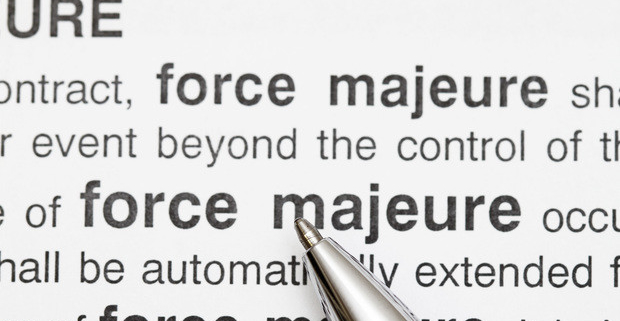Force Majeure Clauses in Commercial Leases
When people go into business, they do so after lots of research. They likely know who their target market is, how much business they can expect, and how much wiggle room they have between what they expect to bring in and their monthly expenses. But when something completely unforeseen and uncontrollable happens, all of these plans mean nothing. That’s why so many commercial leases have force majeure clauses.
If an unpredictable event outside your control has left your business floundering, you may want to investigate your legal options. Use the listings at Legal Chat Now to find a commercial real estate attorney near you.
What Force Majeure Means
“Force majeure” is a French term that means “superior force.” It generally refers to an act of God, or a natural hazard that is uncontrollable and that cannot be pinned on one person. Depending on your lease, you may or may not have a list of specific occurrences that are considered acts of God. Commonly listed events include earthquakes, floods, tsunamis, wars, and catastrophic storms. In the past, force majeure clauses have been used to help commercial tenants delay payment of rent when unforeseen natural disasters have left their business destroyed or inaccessible.
Is COVID-19 a “Force Majeure” Event?
This term has come up a lot in the news recently, due to the COVID-19 pandemic. This situation, completely novel to everyone in the world, required swift action to prevent crowds and events that would draw lots of people in. In turn, many businesses either shut down voluntarily for the good of public health or shut down when forced to by state governments.
Many state governments enacted stay-at-home, shelter-in-place, or safer-at-home orders that required non-essential businesses to close. These orders often allowed gas stations, medical facilities, and grocery stores to remain open while shutting restaurants, non-essential retail, and entertainment facilities.
As you can imagine, this situation left many business owners in dire straits. The COVID-19 pandemic took over swiftly and decimated many businesses’ profits in a matter of weeks. This led many business owners to comb through their commercial leases, looking for any clauses that would allow them to delay or stop paying rent.
The question remains: is COVID-19 an act of God or a superior force? A pandemic cannot be placed squarely on one person’s shoulders, and it is both uncontrollable and unforeseen. However, as these cases have come before the courts, outcomes vary between states.
In Illinois, one restaurant owner was able to seek relief under a force majeure clause because of the governor’s stay-at-home order that forced the restaurant to close. However, this ruling did not provide relief for the time between the onset of the pandemic and the stay-at-home order. While the unprecedented drop in business was due to COVID-19, it wasn’t considered a force majeure until the government imposed a stay-at-home order.
In other states, efforts to seek relief under force majeure clauses have had mixed results. COVID-19 has essentially become a legal battleground where attorneys on both sides have pull out all the stops to try to protect their clients’ best interests.
Relief Sought Under This Clause
Many people misunderstand the type of relief sought and provided under force majeure clauses. Basically, it all depends on the specific terms of your contract. Under some contracts, an act of God allows for the cessation of rent payments and even the termination of the contract if the event is severe enough. Other contracts have less leeway for commercial tenants, simply allowing them to postpone their rent obligations until such a time that the act of God has passed, and they are able tiresome normal business operations.
Discuss Your Commercial Real Estate Needs with an Attorney Now
Commercial real estate is a complicated area of law, and if you’re struggling with a force majeure clause in your contract, you need to talk to an experienced attorney. The COVID-19 pandemic has presented unforeseen legal challenges, and you want an attorney who can navigate these issues with confidence. Search for commercial real estate attorneys in your area and contact a lawyer that suits your needs.




Leave a Reply
Want to join the discussion?Feel free to contribute!